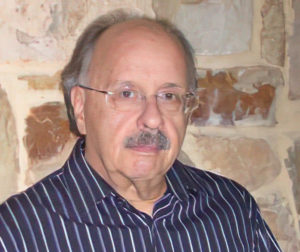
THE 24th INTERNATIONAL CONFERENCE AND WORKSHOP ON TEFL & APPLIED LINGUISTICS
Ming Chuan University
March 17-18, 2023
CONFERENCE THEME
Exploring English Education in the Post-Pandemic Era: Reflection and Prospect
| Topics
- 全英語授課 English as Medium of Instruction, EMI
- 學科內容與語言整合學習 Content and Language Integrated Learning, CLIL
- 英語沉浸式課程 English Immersion Programme, EIP
- 高等教育國際化 Internationalization of Higher Education
- 行動學習 Mobile Learning
- 促進英語教師專業成長 Enhancing Professional Development of English Teachers
- 科技對翻譯的影響 The Influence of Technology on Translation
- 第二語言革新教學:教學策略、政策與挑戰 Innovation in L2 Teaching: Strategies, Policies, and Challenges
- 電腦科技在語言教育的應用與成效 Digital Language Learning and Teaching: Implementation and Effectiveness
- 跨文化溝通能力與其發展 Intercultural Communication Competence and Its Development
- 英語為全球通用語及跨文化溝通 English as Lingua Franca and Intercultural Communication
- 海外遊學語言習得及多語言認同 Study Abroad, Language Acquisition, and Multilingual Identity
- 其他 Other Themes Related to Language Studies, Culture, and Literature

| Featured Speakers & Invited Speakers
| Types of Presentation
❏ Papers
❏ Workshops
❏ Panel Discussions
❏ Poster Sessions
■Poster PowerPoint file (8 pages) (via email)
■Poster Size: A1 (594mm*841mm), one poster, printed by the presenter(s)
❏ Publishers’ Sessions



| Important Dates
■Abstracts for paper presentation, poster presentation due: December 1st, 2022
(abstract of no more than 300 words plus CV via email: mcuaeic@gmail.com (link sends e-mail))
■Acceptance notification: December 13th, 2022【If abstracts are accepted】
■Full paper deadline: January 10th, 2023 (10 pages maximum)
■Acceptance notification: February 1st, 2023
| Abstract Submission
❏ 摘要字數勿超過 300 字,需以英文撰寫以利匿名審查
❏ The conference invites abstracts of no more than 300 words in English for double-blind peer review.
-- CV Form
| KEYNOTE SPEAKERS

| TEST
Abstract
Tentative Schedule
MCU Presenters / Attendees
Domestic Presenters / Attendees
Overseas Presenters / Attendees
Conference Venue
| Location
基河校區:臺北市基河路 130 號
No.130, Jihe Rd., Shihlin District, Taipei City 111, Taiwan
| Transportation
TBA
2021/ The 30th International Symposium and Book Exhibit on English Language Teaching &
The 23rd International Conference and Workshop on TEFL & Applied Linguistics
ETA-ROC & Ming Chuan University
November 12-14, 2021
Chien Tan Overseas Youth Activity Center, Taipei, Taiwan
Conference Theme:
Positioning the Issue of Linguistic Power of English: EMI, English Immersion,
World Englishes, Internationalization in Higher Education, and Information Sharing and English as a Global Language
WELCOME TO OUR JOINT CONFERENCE!
English Teacher Association (ETA-ROC) entrusts Ming Chuan University with organizing and holding The 30th International Symposium and Book Exhibit on English Language Teaching, which is combined with The 23rd International Conference and Workshop on TEFL & Applied Linguistics, in order to provide a platform for scholars and researchers to share the fruits of their studies.

Topics
Primary School Teaching Issues. Our English language teaching in Taiwan and much of East Asia began at the primary school level over twenty years ago, yet classes may be limited to two hours per week. Is this enough for significant learning? What issues are of relevance to primary school teachers?
Secondary School Teaching Issues. One of the complaints of some teachers is that all students use the same materials and are expected to progress at the same rate, yet often students fall behind. Grouping classes by ability can be controversial. The secondary level is where most students get the bulk of their English training. How can we generate more efficient learning? What are the different issues that affect learning in junior high, senior high, and vocational schools?
Teacher Training. Considering various concerns at all levels of ELT, how can teacher educators help our pre-service and in-service teacher training address these issues?
Technology. Digital technologies and distance learning have now been in use for many years. While many schools have invested a lot of money in the hardware, have there been any positive results?
Research. There is a continuing need for research in traditional areas of English teaching and learning to suggest more effective ways to facilitate student learning including studies on methodology as well as research into related fields such as second language acquisition, psychology, and the rapidly-developing neurolinguistics to better inform teachers of how learning actually occurs.
Testing and Evaluation. Nowadays most universities require the passing of an established English test (GEPT, TOEFL, TOEIC, or others) at a certain level before graduation. Though controversial, this trend is set to stand. While these tests meet established standards, other tests have not been so rigorously scrutinized, yet we use them to determine students’ grades and ultimately their futures. What has been done or what can be done to make our everyday tests better? How can these issues be addressed effectively?
Other Areas:
- Bridging Theory and Praxis in ELT
- Enhancing Professional Development of English Teachers
- Classroom Practice
- Teaching Strategy
- Improving Students’ Motivation
- English as Lingua Franca
- Strategies and Effects of English as Medium of Instruction throughout the Educational System
- Globalization and International Education
- Intercultural Communication Competence and Its Development
- AI, Technology, and Their Presentation in Literature
- Mobile Learning
- Multi-Literacies and Trans-Languaging
- The Influence of Technology on Translation
- Digital Language Learning and Teaching: Implementation and Effectiveness
- Language Education and Intercultural Communication
- Learner Identity and L2 Learning
- Comparative Literature and Culture Studies
Language
The languages of the conference are English and Mandarin Chinese. Papers to be presented in Chinese must have titles and proposals submitted in Chinese. If a proposal is submitted in English, then the paper should be delivered in English.
Types of Presentation
- Papers
- Workshops
- Colloquia
- Panel Discussions
- Poster Sessions
- Publishers’ Sessions
Steps in Submitting a Proposal
(1) Prepare three copies of the abstract without your name or other identifying information. The abstract should be double-spaced (12 points), with one-inch margins, and fit on one sheet of A4 paper (about 200 words). (Abstracts written in Chinese or other languages should be typed on the computer and follow a similar format.) The title should appear on the first line and be limited to 10 words.
(2) Prepare one copy of the two-page Presentation Proposal Form (or two forms if there are two presenters, etc.). For Colloquia and Panel Discussions, send one form for EACH member of the panel, including the discussion leader/moderator.
(3) Submit the three copies of the abstract (without your name) and the two-page presentation data form (one for each presenter) by email before March 31, 2021 (extended deadline). NOTE: Abstracts sent by facsimile (FAX) will not be accepted.
Email submission should be sent to 2021etaconference@gmail.com
Presenters will be limited to a maximum of one individual presentation (paper or workshop) and one joint presentation per person.
Registration and Attachments
Contact Person
Contact person: Irene Hung | 2021etaconference@gmail.com
Tel: 886-3 350-7001 ext. 3211、3212、3213 | Fax: 886-3-359-3870
| Tentative Program
邀請學者 Plenary Speakers
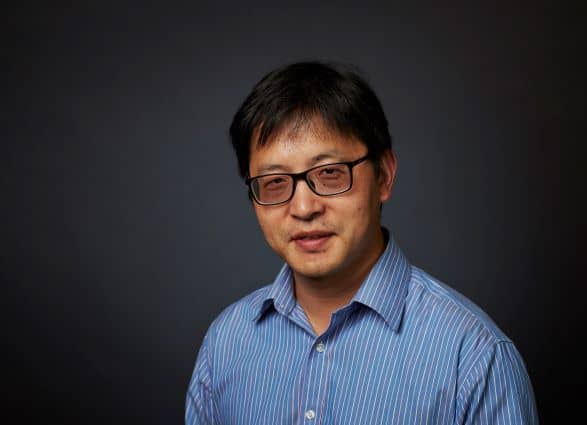
Andy Gao Xuesong
Xuesong (Andy) Gao is an associate professor at the School of Education, University of New South Wales, Australia. He has been involved in language teacher education in Hong Kong, mainland China, and Taiwan. His research interests include language learner autonomy, language education policy, and language teacher education. His research has been funded by Research Grants Council (Hong Kong), Sumitomo Foundation (Japan), and the Standing Committee for Language Education and Research (Hong Kong). He has published widely in international journals, including ELT Journal, TESOL Quarterly, Modern Language Journal, and Teaching and Teacher Education. He is a co-editor of System: An International Journal of Educational Technology and Applied Linguistics and co-editor of the English Language Education book series, published by Springer.
| Language Teacher Agency: Why and How It Works?
Featured Presentation
This talk presents the notion of language teacher agency as a key construct for us to understand language teachers’ professional practice and development. In the talk, I will answer the ‘what’ question, offering major conceptualisations of agency and explaining how they shape the way that language teacher agency can be approached. I will then continue with the ‘why’ question and elaborate on the different reasons that language teacher agency matters at multiple levels of a given context. I also discuss how it intersects with such concepts as teacher identity, emotion, belief and knowledge. I conclude the talk with suggestions on how to promote teacher agency through making changes to contexts and/or actors.
| A Workshop on Promoting Learner Agency in Language Education
Workshop
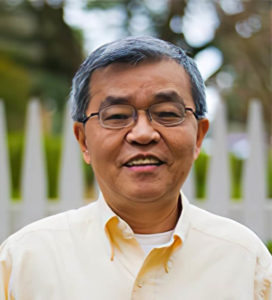
Dilin Liu
Dilin Liu (刘迪麟) is a Professor of the Applied Linguistics/TESOL program in the English Department at the University of Alabama, USA. His research focuses on the description and teaching of English grammar and vocabulary using cognitive- and corpus-linguistic approaches. He has published extensively with over 80 publications, including six books and numerous journal articles, and book chapters. His articles have appeared in many different international journals in linguistics and applied linguistics, including Applied Linguistics, Cognitive Linguistics, ELT Journal, English for Specific Purposes, Foreign Language Annals, International Journal of Applied Linguistics, International Journal of Corpus Linguistics, Journal of English for Academic Purposes, Journal of English Linguistics, Language Teaching Research, Modern Language Journal, Research in the Teaching of English, Studies in Second Language Acquisition, TESOL Journal, and TESOL Quarterly. He has served on the editorial boards of ELT Journal, Journal of English for Academic Purposes, Lingua, System, TESOL Quarterly, TESOL Journal, among others, as well as a reviewer for over twenty international journals and book publishers, such as Cambridge University Press, Palgrave-MacMillan, and Routledge.
| Arguing for Exploring Underlying L1 and L2 Similarities for L2 Lexicogrammar Learning: The Case of Chinese Speakers Learning English as an L2
Featured Presentation
Due to the influence of Contrastive Analysis (CA), there has been ample research on how L1 may interfere with L2 learning. Such research has produced many useful findings and led to new views or theories about the role of L1, including the weak- or posteriori-view of CA and Error Analysis (which focuses on identifying systematic learner errors and determining the sources of the errors afterwards when possible, rather than on L1 and L2 differences). However, CAinspired research has also resulted in what I consider to be an excessive emphasis on interlanguage differences along with an under-appreciation of the underlying L1 and L2 similarities that can and should be explored to help L2 learning. Using Chinese speakers learning English as a case in point, I try to argue in this article that there are actually important overlooked similarities underlying some of the most well-known lexico-grammatical differences between Chinese and English that have been thought to be the major sources of difficulties for Chinese EFL/ESL learners. For example, although morphological inflections and phrasal verbs have long been considered two prominent English structural features lacking in Chinese, a close look at the Chinese language will reveal that it actually makes use of both lexico-grammatical features, though to a lesser degree and in different manners/formats. In other words, these two important English lexico-grammatical concepts do also exist in Chinese. Then, using concrete examples, I will further contend that making learners understand the similarities that underly well-known surface inter-language differences may help learners more effectively grasp the lexicogrammatical structures they are learning.
| Understanding near-synonyms that Chinese EFL/ESL
Featured Workshop
Learners often misuse in academic writing Synonyms are lexical items that express the same or nearly the same meaning in some or all senses and contexts. In a strict sense, most synonyms are near-synonyms. While near-synonyms are ubiquitous in language, they are very difficult to grasp even for native speakers, but particularly so for L2 learners because often near-synonyms in one language may not be the same in another language. In this workshop, we will examine some near-synonyms which, based on the speaker’s published and ongoing research findings, Chinese EFL/ESL writers often misuse, including “demand/request/require,” “discrepancy/disparity/divergence,” and “important/significant/vital.” Effective ways for learning to differentiate near-synonyms and to use them correctly and effectively in academic writing will be explored via hands-on activities.
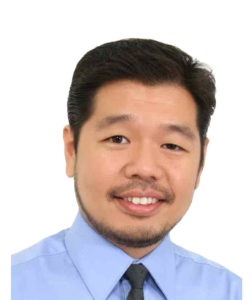
Jason Loh
Jason Loh (盧國強) is a senior lecturer at the National Institute of Education, Nanyang Technological University, Singapore. He has taught across primary, secondary, and tertiary levels and currently trains preservice teachers in the teaching of English language. His research interests focus on teacher education and language curriculum, particularly in curriculum implementation and the use of curriculum materials. He has been involved in a number of research projects studying innovations in language teaching and teacher beliefs. His most recent project was an evaluative study on the implementation of the national literacy reform in Singapore primary schools. He has recently published in these two broad areas via Teaching the World’s Teachers (Lefty & Fraser, 2020), NISSEM Global Briefs (2020), Oxford Research Encyclopedia, Education (2019), The TESOL Encyclopedia of English Language Teaching (2018), and The Wiley Handbook of Teaching and Learning (2018).
| A Diversified Enactment of the National EL Curriculum: Reflections
Featured Presentation
This paper is a study on the enactment of the national English language (EL) curriculum, through the national literacy programme, across a sample of nine primary schools that are spread across the socioeconomic spectrum. The intent of the national EL curriculum, and its accompanying national literacy programme, is to ensure that there is equal opportunity for all students to reach a high level of competency in the English language. However, due to the fact that it is a national EL curriculum /programme, it is logically pitched to the average learner. As a result of that, there are wide variations in its enactment and accompanying practices. This study aimed to gain insights into the variations of the enactment through a systematic study of the teachers’ extent of use of the programme (Hall & Hord, 2015) and the degree of curriculum material appropriation (Brown, 2009). The findings suggest that there are differences in the ways schools from the three different SES groups enact the national curriculum/programme, as well as similarities in enactment by schools with similar cultures despite the differences in SES. Curricular adaptations to meet the different learning needs of students may be a hallmark of the effective teacher; however, rampant adaptations, without understanding the programmatic rationale and the programme’s core components, can lead to programme drift, and, hence, negate the programme’s intent. This has implications for national curriculum reform efforts, because to date, the vast curriculum implementation literature tends to focus on the implementers; it is just as important, if not more, to uncover and address the learning needs of the diverse student profiles when constructing a curricular reform.
| Ascertaining Curriculum Enactment: An Introductory Workshop
Featured Workshop
Fullan (1983) posited that implementation is “critical for both the planning and the evaluation of new models and programs” (p.224). With an explicit understanding of implementation process, it will help the curriculum developers “be more precise about the operational components of their programmes”, gather “clearer, more useful information about what is happening in practice, and consequently about how to improve it”, and “draw a direct causal link between the model, its quality of implementation, and its outcomes” (pp.224-225). Only by looking at the implementation are curriculum developers able to confirm (or disconfirm) that the reforms have been successful or otherwise. With this knowledge of the implementation process, the developers are then able to pinpoint the specific aspects of the implementation that needs to be improved or addressed. This information is especially pertinent when academic outcomes are not achieved, even though a reform has taken place. The implementation evidence can then be drawn upon to explain such a scenario – whether the reform was inadequate to meet the needs of the teachers and learners or the reform was not implemented properly (Fullan, 1983). Such specific implementation data can aid curriculum developers to communicate the value and progress of the reform to the schools and the larger educational community. Such implementation data can also help developers explain differences in outcomes across schools, even though all schools are enacting the same reform programme.
Decades ago, Fullan (1983) posited that implementation is “critical for both the planning and the evaluation of new models and programs” (p.224). The importance of ascertaining implementation must not be underestimated when evaluating programmes; improved or poor academic outcomes cannot be attributed to the reform, if the reform were not implemented properly. It is the implementation data, rather than the academic outcomes, that can help curriculum developers confirm that the reforms have been successful or not. There are eight aspects of implementation that are attended to in implementation assessment (Durlak & Dupre, 2008); of the eight, Dusenbury, Brannigan, Falco, and Hansen (2003) have branded fidelity as the aspect of implementation which informs researchers of the reason(s) behind an innovation’s success or failure. Fidelity is defined as the extent to which an innovation corresponds with the programme as intended by its developers (Durlak & Dupre, 2008). While research has found that high levels of fidelity lead to positive programme outcomes (Berkel, Mauricio, Schoenfelder, & Sandler, 2011), it has also been discovered that practitioners tend to adapt an innovative programme to suit their local needs (Elliott & Mihalic, 2004). Because fidelity is considered so significant in the study of implementation, this will be the workshop’s primary focus, specifically in three areas: 1) teachers’ concerns and how such concerns may affect the fidelity of their implementation; 2) teachers’ enactment of practices; and 3) teachers’ use of curriculum materials. This workshop will introduce to the participants some tools with which to ascertain these three areas.
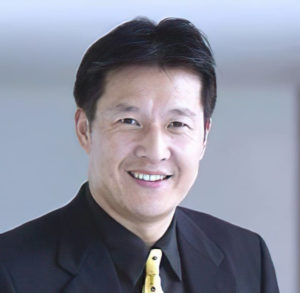
Liu Jun
Prior to joining City University of Macau as Rector, Dr. Liu was Professor of Linguistics, Vice President and Vice Provost for Global Affairs, Dean of International Academic Programs and Services, and Founding Director of China Center at Stony Brook University. He previously served as Associate Provost for International Initiatives and Professor of Applied Linguistics at Georgia State University after his tenure at University of Arizona as Assistant Vice President, Professor and Chair of English Department. As an international leader in the field of language education, Dr. Liu became the first Asian President of TESOL International (Teachers of English to Speakers of Other Languages, Inc. 2006-2008) and is the recipient of the James E. Alatis Award of Outstanding Service to TESOL (2016). He is currently Vice President of TIRF (The International Research Foundation of English Language Education). Dr. Liu has published extensively in the area of language learning and teaching, curriculum development, teacher education, and intercultural communication, including 20 books and 100 papers and book chapters. Dr. Liu has served as a reviewer and on editorial boards for many international journals and presses. A sought-after motivational speaker, Dr. Liu has given close to 200 plenary and invited speeches in more than 30 countries to date.
| Internationalization in Higher Education
Plenary Speech
Internationalization in higher education is a buzz word around the globe, but its interpretation, framework, as well as its implementation vary from continent to continent, region to region, and country to country. Internationalization in Asia, for instance, is different from that in North America. Having worked in both continents for many years, Liu is going to explore the complexities of campus internationalization with regard to the contexts, geopolitical and socio-economic situations, models of global university collaborations, student exchanges, study abroad, faculty exchanges as well as global research institutes. Liu will focus on the role of English in internationalization and how language educators can contribute to glocalizing higher education, and help students succeed as future global citizens.
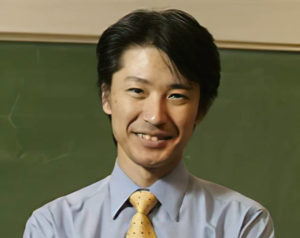
Paul Kei Matsuda
Paul Kei Matsuda is Professor of English and Director of Second Language Writing at Arizona State University, where he works closely with Ph.D. students specializing in second language writing from various disciplinary perspectives. He has published widely on issues related to language and writing and given lectures and workshops all around the world. He is Founding Chair of the Symposium on Second Language Writing and Editor of the Parlor Press Series on Second Language Writing.
| Writing Assessment Literacy for Language Teachers
Featured Presentation
Although writing has become an important part of language instruction, language teacher education courses and materials still do not provide much information about classroom writing assessment. In this plenary talk, a world-renowned second language writing specialist will provide an overview of writing assessment literacy for the language classroom. He will begin by discussing writing assessment literacy and its relevance to classroom teaching. He will then discuss some of the key concepts in writing assessment and different types of writing assessment rubrics, pointing out the differences between standardized writing tests and classroom writing assessment. He will conclude with a brief discussion of how teachers can use assessment to promote student writing development.
| Classroom Writing Assessment: Tips and Tricks Featured
Featured Workshop
Building on the plenary talk, “Writing Assessment Literacy for Language Teachers,” this workshop will provide practical ideas for practicing effective writing assessment in the language classroom. Some of the key topics to be discussed include: How to develop writing assessment rubrics; how to use rubrics to facilitate learning; how to simplify writing assessment while maximizing learning; how to advocate for better writing assessment practices (and other innovative ideas) within the institution. Participants are encouraged to bring other questions about writing assessment and writing instruction.

Ryuko Kubota
Ryuko Kubota is a professor in the Department of Language and Literacy Education in the Faculty of Education. Her research focuses on critical approaches to culture, race, and pedagogy in language education. She is a co-editor of Race, culture, and identities in second language education: Exploring critically engaged practice (2009) and Demystifying career paths after graduate school: A guide for second language professionals in higher education (2012). Her publications have also appeared in Applied Linguistics, Critical Inquiry in Language Studies, Journal of Second Language Writing, Journal of Multilingual and Multicultural Development, Linguistics and Education, TESOL Quarterly, and other journals. She has also published many book chapters and publications in Japanese.
| Toward Critical Antiracist Pedagogy in English Language Teaching
Featured Presentation
Antiracism has become a global phenomenon following the surge of Black Lives Matter (BLM) protests in 2020. The BLM movement has revealed the important role that antiracism plays in creating more just societies. Within the field of English language teaching (ELT), issues of race have been addressed in the last 15 years. However, the BLM movement has made us realize the persistence of the White native speaker norm reflected in instructional and hiring practices and other racial biases within our field. In order to further advance our effort to achieve social justice in ELT, it is necessary to overcome the discourses of evasion, tolerance, and tokenism, and instead develop a critical understanding of racism and antiracism. This presentation will first discuss multiple ways in which racism manifests in society and ELT at the individual, institutional, and epistemological levels. This understanding of the complexity of racism invites teachers to engage in critical antiracist pedagogy, which recognizes intersectionality, multiple forms of racism, and the importance of decolonizing antiracism. It also problematizes complicity, privilege, and power hierarchy, underscoring the importance of building solidarity across differences. Critical antiracist pedagogy in ELT invites teachers to exercise critical reflexivity, open-mindedness, and vigilance.
| Engaging in Critical Antiracist Pedagogy: Idea Generation and Sharing
Featured Workshop
This workshop aims to explore ideas for putting critical antiracist pedagogy into practice through a dialogue among the audience. Critical antiracist pedagogy recognizes multiple forms of racism, incorporates the principle of intersectionality, critically reflect on one’s racial and other privileges, and calls into question marginalized people’s complicity with racism. Critical antiracist pedagogy for English language teaching invites both White teachers and teachers of color to raise critical awareness about racism, engage in a dialogic approach of critical pedagogy, and exercise critical reflexivity with situated ethics. Drawing on some examples from teaching materials and classroom activities, the participants will be invited to explore and share how critical antiracist pedagogy can be put into practice in discussing current topics or events in the media news; familiar topics, such as sports, TV, and movies; teaching materials, including reading texts and visual images; and more. The participants will also explore how to approach teachable moments that occur in unplanned ways in the classroom.
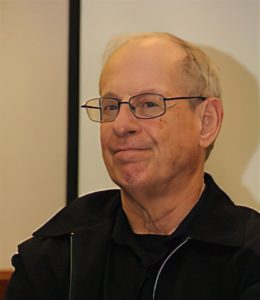
Stephen Krashen
Stephen Krashen received a PhD. in Linguistics from the University of California, Los Angeles in 1972. Krashen has among papers (peer-reviewed and not) and books, more than 486 publications, contributing to the fields of second-language acquisition, bilingual education, and reading. He is known for introducing various hypotheses related to second-language acquisition, including the acquisition-learning hypothesis, the input hypothesis, the monitor hypothesis, the affective filter, and the natural order hypothesis. Most recently, Krashen promotes the use of free voluntary reading during second-language acquisition, which he says “is the most powerful tool we have in language education, first and second.”
| Acquiring Academic Language
Featured Presentation
The usual recommendations for developing academic language focus on direct teaching of vocabulary, grammar, and the study of nonfiction texts. There is research supporting the view that there may be an easier and more effective way: Self-selected fiction. The evidence includes studies showing that fiction contains a considerable amount of academic language. Reading fiction can also result an increase in academic knowledge: Those who read more fiction know more about history, literature, and science. An interesting and important hypothesis is that self-selected reading is more potent than assigned reading in developing literacy as well as knowledge.
It may be the case that we can best prepare our ESL students for academic success not with painful exercises and demanding (and sometimes boring) informational texts but by providing them with access to reading material that they find comprehensible and extremely interesting.
The path of pleasure may be more effective than the path of pain.

Yukio Tono
Yukio Tono is a Professor of Corpus Linguistics and Director of the World Language Center at Tokyo University of Foreign Studies. He received his Ph.D. in corpus linguistics at Lancaster University. His research interest includes corpus applications in foreign language teaching and learning, corpus-based SLA research, and corpus approaches to CEFR-related research and resource development. He is the Principal Investigator for the CEFR-J Project.
| CEFR-J Project: Its Impact on Foreign Language Teaching in Japan
Featured Presentation
As the Principal Investigator, the speaker has been working on the development of the CEFR-J, a localized version of the Common European Framework of Reference for Languages (CEFR) for English language teaching in Japan. For the last 15 years, he has led the project team to develop various educational resources (the wordlist, the grammar profile, the text profile, inventories of exponents, and can-do-based performance test batteries) to enhance the effective use of the framework for ELT from primary to tertiary levels. After a brief description of the project, he will discuss the possibility of creating a language-independent workbench for designing and preparing syllabuses and teaching materials using the CEFR-J resources and corpus data in the target languages. As an example, a program of pedagogical reforms on 28 foreign language majors at TUFS using the CEFR-J will be reported.
| Useful Text Analysis Tools for Teachers
Featured Workshop
In this workshop, I will share some of the useful text analysis tools for language teachers. The workshop is designed for those who are not familiar with text analysis tools such as Text Inspector, Coh-Metrix, Lexical Complexity Analyzer, Kristopher Kyle’s suits of tools, among others. Concordancers such as AntConc will not be covered in this workshop. I will demonstrate how to use the tools and explain how to interpret the output. Especially the workshop will be useful for those who want to know how those tools behave differently in terms of tokenization or lemmatization, which will affect the results of your analysis. Also practical tips for using those tools for teaching will be discussed.





